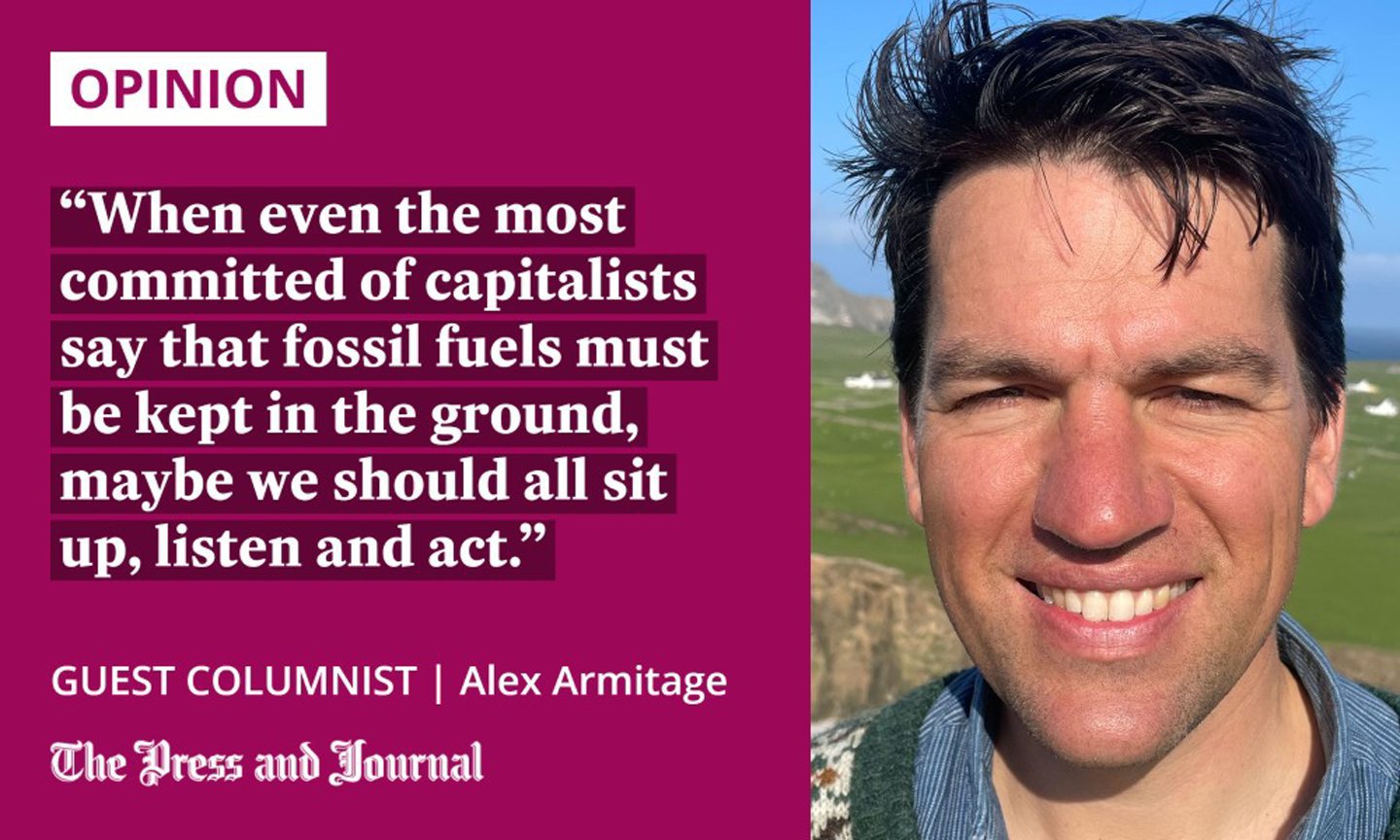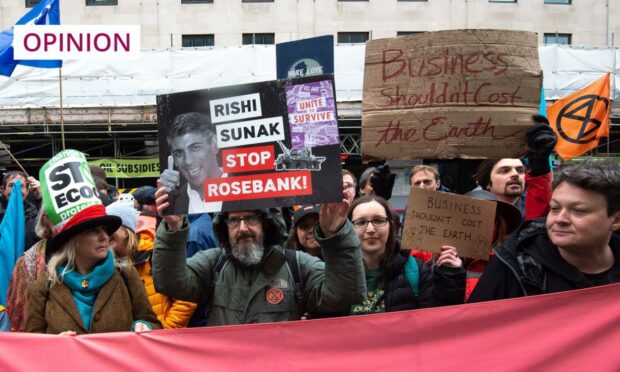Recently I was involved in a protest against the Rosebank oilfield in Shetland. I am a Greens councillor, elected to represent the people of Shetland.
It is no secret that oil and gas have hugely benefitted Shetland for the last 50 years. Our roads, leisure centres and schools, the Shetland Charitable Trust and our huge council reserve fund all come from the money generated by the oil and gas sector. Hundreds of workers in Shetland still have well-paid jobs in the industry, and many retired workers have good pensions and valuable shares in oil and gas companies.
So, why am I trying to spoil the party?
As well as being a local politician, I am a children’s doctor. As somebody who is scientifically literate and has a professional duty to speak out on issues of public health, I know climate “change” is too mild a description: at this point, climate breakdown is the more realistic phrase.
Too many people for too long have not fully understood how serious the situation is. The heating of our planet is already having serious consequences; these will multiply exponentially in decades to come.
The climate HAS changed. Our key challenge is to get a grip on this situation before things spiral out of control, wrecking the future for the babies and young children I treat every day in my paediatric clinic.

The severe storms and snowfall that many parts of Shetland experienced this winter, resulting in power cuts for days on end, are an example of the kind of freak weather events becoming more frequent due to climate breakdown.
In response to the devastation wrought by the storm in Shetland, a national major incident was called and dozens of workers were shipped in from all over Scotland. All of those workers said they had never seen anything like it before. Some called it apocalyptic.
Last year in mainland Britain, for the first time, the temperature hit 40C. Last month was the hottest June on record. This year, the sea temperature around Shetland is almost a whole degree warmer than usual. This should worry us all, especially given that our economy is highly dependent on a marine ecosystem that produces fish.
Professor Ray Hilborn, a fisheries scientist at the University of Washington and advocate of the fishing industry who came to give a talk at UHI in Scalloway last year, said that climate breakdown is the biggest threat facing the fishing industry. Even amid the current threats to the fishing industry, it’s not hard to see why.
Britain should take its chance to set a good example
In the UK and in Shetland, we have a plan to reduce our carbon emissions. We have the knowledge, we have the technology and our workers have the skills. What we don’t have, yet, are political leaders with the guts to lead the change. Leaving Rosebank’s oil in the ground is a real test of that political leadership.
The workforce requirements of the transition to a renewable energy economy are huge. Committing to a project like Rosebank would trap skilled workers in the fossil fuel industry – this would be a huge waste of expertise, further hampering our acceleration to renewable energy, electrification of transport and insulation of buildings.
Decarbonisation is already starting to happen at pace across Europe and the world. No one is suggesting that we turn off the taps tomorrow; whilst we will continue to need oil and gas extraction in order to meet our needs in the very short term, using oil from Clair and other existing fields, it is possible for us to decarbonise quickly enough to avoid the need for burning Rosebank’s oil.
Leaving Rosebank’s oil and gas in the ground is a declaration of intent that we, as a country, are committed to decarbonising our society. At a time when the UK’s Climate Change Committee says we are failing to meet our own targets and abdicating our global leadership role, this would also be a statement of international leadership, setting an example to the rest of the world.
Other, much bigger countries look to us for leadership, but currently find it lacking. A decision to stop Rosebank would change that
Britain is no longer a global superpower, but we have retained a high level of diplomatic power in the world. Other, much bigger countries look to us for leadership, but currently find it lacking. A decision to stop Rosebank would change that, laying down the challenge to bigger players in the world economy such as India, China and the USA.
Attitudes towards fossil fuels are changing
Slowly, attitudes are beginning to shift. Recently, Shetland Islands Council’s fund managers, who are responsible for profitably investing hundreds of millions of pounds of our oil money, came to Shetland and told elected members in the council chamber that fossil fuels needed to be left in the ground, and that they would not hold equity in oil companies that were planning on developing new fields.
When even the most committed of capitalists say that fossil fuels must be kept in the ground, maybe we should all sit up, listen and act.
With our economic history and our geographic location, Shetland has an outsized political voice on this issue. Now is the time to use it.
Alex Armitage is a Scottish Greens councillor for Shetland South

